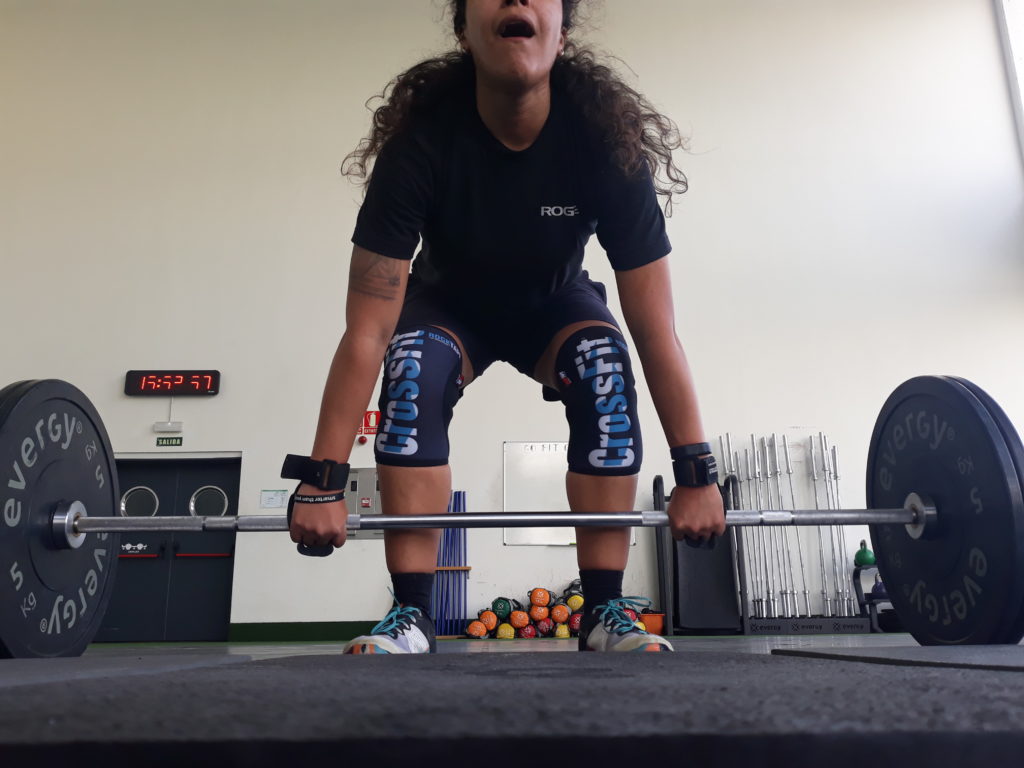
We’ve probably all read humorous articles regarding the different CrossFit personalities we may see in a box:
- The alpha male that slams weights on the ground and grunts louder than anyone else.
- The athlete who shaves off the reps just to put up a higher score than their fellow crossfitter.
- That one athlete who acts like a coach and corrects your squat technique after caving their knees and unbracing their core performing a front squat with an unloaded barbell.
But personality is much more complex. Costa & McCrae (1995) conceptualized it as a construct that encompasses “relatively enduring styles of thinking, feeling and acting”. Personality is revealed by “traits” which have been categorized by many different authors in efforts to define them universally.
How personality affects sports in general
The categorization that is more generally accepted is the one provided by Costa & McCrae (1992), which includes five separate dimensions: openness to experience, conscientiousness, extraversion, agreeableness and neuroticism. The influence of personality has necessarily been investigated in relation to many aspects of an individual’s life, including sports.
Some studies aimed to further explain the relationship between personality traits and performance or adherence to sport, its benefits in terms of health and so on. The body of literature in this regard, revealed that personality can have a strong impact on having a more active or sedentary lifestyle.
Extraversion, openness, agreeableness and conscientiousness maintain a positive and direct relationship with physical activity, while higher scores in neuroticism were linked to decreased activity levels (Sutin et. al, 2016). Furthermore, conscientious individuals present concerns about being healthy which protects them against physical inactivity (Courneya & Hellsten, 1998).
What about CrossFit?
Sadly enough, personality has yet to be investigated in relation to CrossFit. However, the nature of the sport and studies regarding sport in general allow us to hypothesize. All this, in hopes to give more insight into the personality traits that define us crossfitters.
To do so, I’ll be talking about three particular dimensions I’ve observed in crossfitters: extraversion, agreeability and conscientiousness. Naturally, these affirmations are based on unformal observation from a psychologist who can’t help but analyze others’ behavior in any given setting.
Extraversion
As many may have anticipated, extraversion is more typically seen in individuals that thrive in social settings and seek constant and diverse stimulation. Given their nature, it would appear logical for them to enjoy CrossFit. A box filled with loud music, people running all over the place, screaming, grunting and high-fiving… paradise for an extrovert.
Not to say that introverts are not seen in CrossFit, but they probably need more time to adapt to the madness that ensues in boxes. Therefore, I don’t think introversion is a typical crossfitter trait.
Conscientiousness
As previously mentioned, higher scores in conscientiousness are related to higher activity levels. In contrast, lower scores in this factor can be a risk factor for sedentary behavior. Individuals with low conscientiousness find more barriers to exercising and negate their control over their ability to engage in physical activity.
In CrossFit, it’s common to see individuals from both ends of the continuum. We have athletes who have been active their entire lives and carry out a healthy lifestyle. But we also find success stories from individuals who had seen their sedentary behavior put their health at serious risk and decided to do something about it. Their levels of conscientiousness were not where they needed to be but they, somehow, found their way to CrossFit and changed their lifestyle.
Agreeability
Now, here’s a dimension that really spikes my interest. Agreeability is the ability to be generous, compassionate and sensitive towards others’ needs (Costa y McCrae, 1992). Lower scores in this factor are related to the more competitive and arrogant nature… which is awfully common in crossfitters.
Although CrossFit tries really hard to eliminate egotistic mannerisms in the box, the truth is it’s all over the place. Going Rx or outlifting the guy next to you is secretly motivating for many athletes. It goes without saying that these individuals have zero to no agreeability.
But wait… wasn’t personality “relatively enduring”?
Why yes, indeed. Our personality traits serve as guidelines for our behavior and will be consistent most of the time. However, they can be molded and adapted to certain situations.
- Introverts may not enjoy mingling with all the athletes in the box but that doesn’t mean they won’t high-five you when you finish the WOD.
- An overweight athlete with type-2 diabetes may have neglected their health during most of their life but that doesn’t mean they can’t experience the positive impact CrossFit has on their physical well-being and stick with it.
- The alpha male that needs to outlift every athlete in the box may scale the weights in a team workout so their partner can move the barbell more efficiently.
What I mean is that CrossFit may appeal to certain personality traits but it can also help broaden our ways of thinking, feeling and acting.
Costa, PT., Jr, McCrae, RR. (1992) Revised NEO Personality Inventory (NEO-PI-R) and the NEO Five-Factor Inventory (NEO-FFI) professional manual. Odessa, FL: Psychological Assessment Resources.
Costa Jr, P. T., McCrae, R. R., & Kay, G. G. (1995). Persons, places, and personality: Career assessment using the Revised NEO Personality Inventory. Journal of Career Assessment, 3(2), 123-139.
Courneya KS, Hellsten LAM (1998) Personality correlates of exercise behavior, motives, barriers and preferences: An application of the five-factor model. Personality and Individual Differences; 24:625–633.
Sutin, A. R., Stephan, Y., Luchetti, M., Artese, A., Oshio, A., & Terracciano, A. (2016). The five-factor model of personality and physical inactivity: A meta-analysis of 16 samples. Journal of Research in Personality, 63, 22-28.
